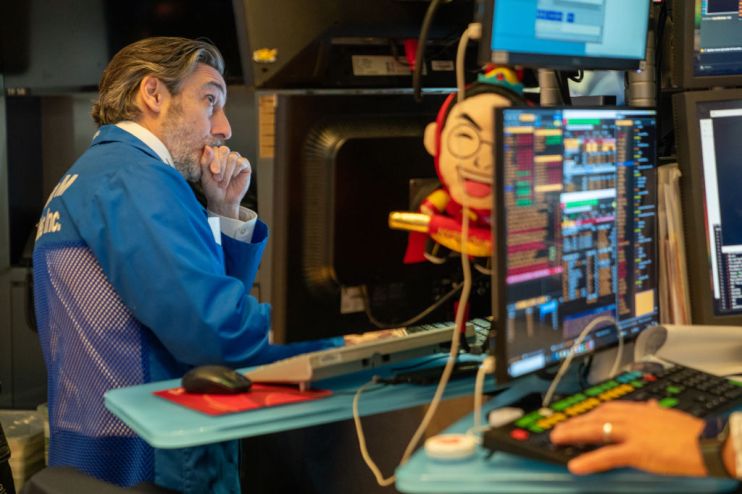US posts strong jobs data but analysts say coronavirus means report ‘outdated before it came out’

The US posted strong jobs data for February today but markets remained in the red on fears of the impact of coronavirus on the world economy.
Total nonfarm payroll employment rose by 273,000 in February, and the unemployment rate was little changed at 3.5 per cent, the US Bureau of Labor Statistics said today.
The numbers were well ahead of expectations and would normally be expected to lead to bullish sentiment on Wall Street.
However, the dollar fell one per cent against a basket of currencies and markets continued to suffer.
The S&P 500 was 2.91 per cent down at 2,935, the Dow was 2.89 per cent down at 25,366 and the Nasdaq Composite was trading three per cent down at 8.470.
The US now has 233 confirmed coronavirus cases, according to John Hopkins University data.
Erik Norland, senior economist at CME said: “ February’s employment report was outdated before it came out. Normally, one looks to the employment report for an indication as to where US monetary policy might be going at the next meeting. This time around markets already know where policy is going –or think that they do.”
On Tuesday, the Fed made its first cut to interest rates outside of a regular meeting since the financial crisis, trimming rates by 50 basis points to a target range of one per cent to 1.25 per cent.
Ulas Akincilar, head of trading at the online trading platform, Infinox, said: “At any other time, such a barnstorming jobs report would have unleashed the bulls. Well over a quarter of a million jobs – more than 100,000 more than expected – were created in February.
“So it’s a mark of just how seriously marketwatchers are taking the coronavirus threat that this near perfect jobs report has left the dollar largely flat.”
Naeem Aslam, chief market analyst at Avatrade, said: “The US NFP number was decent but it failed to tame the turmoil in the equity markets and investors are not even remotely interested in riskier assets.”
Richard Flynn, UK managing director at Charles Schwab, said: “While Tuesday’s rate cut may help to support some economic demand, much of it is unlikely to show up where spending has been cut the most – travel and entertainment – given the fears of contagion, and it is unlikely to have any impact on restoring disrupted supply chains.”